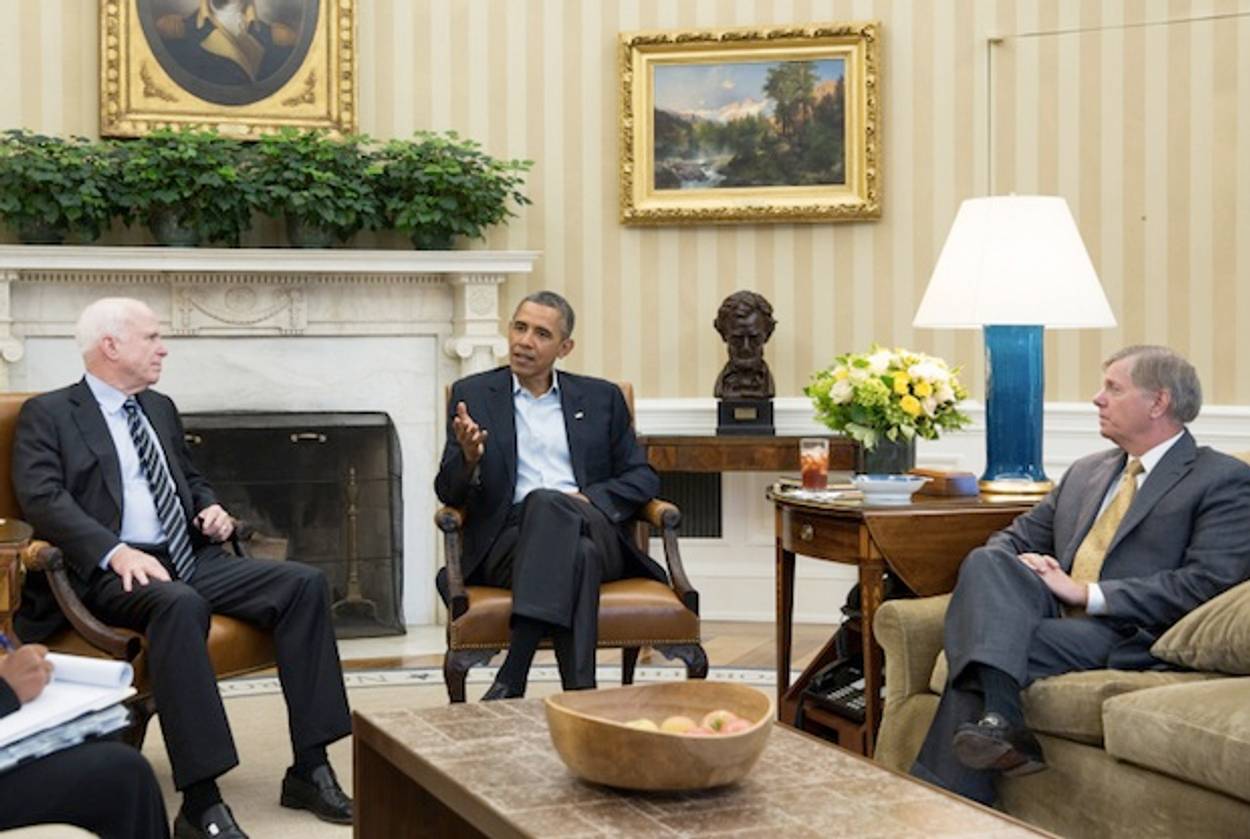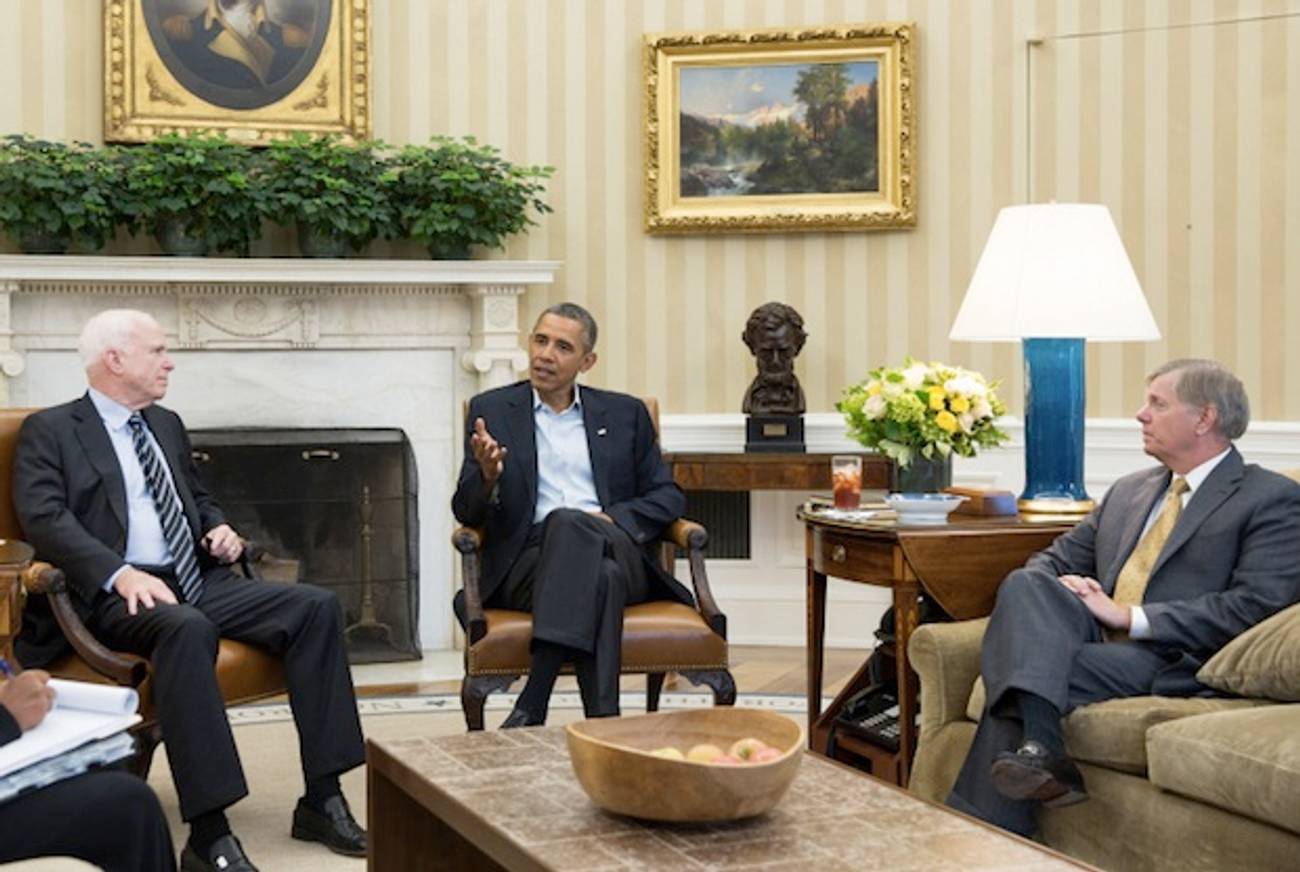U.S. Inaction on Syria Rankles Israelis
Except Shimon Peres




If you had a luxurious Labor Day, then count your blessings. In Syria, embattled dictator Bashar Assad was busy talking to the press. It was the first time he’d been interviewed since the the United States first threatened to strike the Assad regime after Assad’s forces reported used chemical weapons in an attack that was said to have killed 1,400 people late last month. Assad sought to convince the world that he is mostly fighting Al Qaeda terrorists at this point and that a strike against him could instigate a regional war, which could include responses from the Iran-Hezbollah axis.
“The Middle East is a powder keg, and the fire is getting closer. We should not only talk about the Syrian response, but what might happen after the first strike. But nobody knows what might happen. Everyone will lose control of the situation when the powder keg explodes. Chaos and extremism will spread. There is a risk of a regional war.”
Meanwhile, President Obama met with the two remaining amigos, Senators John McCain and Lindsey Graham, who both emerged from the meeting in favor of American military action on Syria, which will likely be brought before Congress for a vote next Monday. American action, McCain warned in grammatically curious fashion, needed to be clearly defined and more potent than the widely-predicted symbolic cruise missile strikes against Assad installations.
“What we do want is an articulation of a goal that over time to degrade Bashar Assad’s capabilities, increase and upgrade the capabilities of the Free Syrian Army and the Free Syrian government so they can reverse the momentum on the battlefield.”
He added that “a weak response is almost as bad as doing nothing.”
Meanwhile, Israelis seemed unenthusiastic about the Syria deliberations, no doubt a product of their very different approaches to statecraft. First, as the case for action was being laid out, some Israelis took none too kindly to the idea that they needed the protection of the United States against Syrian weapons of mass destruction. According to a Channel Two report, an official said that Israel “is not a victim. We don’t need America to take care of threats to Israel.”
Over the weekend, President Obama’s ambivalence to follow the support of his closest advisers and strike at Assad also led at least one Israeli official and countless pundits to conclude that President Obama was “a coward” for not moving forward with a threadbare coalition of the willing. Israeli President Shimon Peres pushed back against the idea, displaying confidence that the U.S. will “respond appropriately.” He added:
I don’t think that exercising judgment means stammering.”
It’s not earth-shattering to suggest that many believe that President Obama is stammering. Within the context of Iran, which is no doubt watching the recent goings on in Syria with great intent, this has been a damning refrain. It also raises the question of future Israeli action. Writing in Foreign Policy, Tablet contributor Amos Harel predicted that there will be more Israeli involvement in the Syrian conflict, which is believed to have already included four airstrikes this year.
Israel does not believe it has a role in responding directly to the use of chemical weapons against any of the warring parties in Syria, though it has been monitoring these incidents closely. In April, when an IDF intelligence officer publicly announced that Assad had used chemical weapons in at least two incidents, he was quickly rebuked by the Obama administration. It took the Americans two weeks to grudgingly admit that the Israelis were right about what had happened.
Like the United States, Israel has no good options in Syria. Netanyahu realizes that Assad’s survival at this stage would represent a huge achievement for the Iran-Hezbollah axis, which represents Israel’s main antagonist in the Middle East. On the other hand, the prime minister worries about al Qaeda’s growing presence: A senior IDF official recently told me there were about 10,000 jihadi fighters in the southeastern Golan Heights, just across the border from Israel. At some point, Israeli officials know, these zealots will show an interest in their Jewish neighbors.
As we learned last week, Israelis aren’t too fearful of that.
Adam Chandler was previously a staff writer at Tablet. His work has appeared in the New York Times, the Wall Street Journal, the Atlantic, Slate, Esquire, New York, and elsewhere. He tweets @allmychandler.